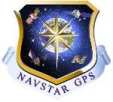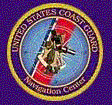CORS is a wonderful resource for
GPS data, including precise satellite positions, RINEX files, and TEC data. The site contains
a list of hundreds of
GPS stations thoroughout the world and places
all their data in one locale.
The Rinex2 format documentation
for decoding the data fields in Rinex2 navigation and observation files is also available from
the National Geodetic Survey.
|

|
The International GNSS Service is a global system of satellite tracking stations, currently tracking both GPS and GLONASS satellites. They provide a wealth of data, including ephemerides, ground observations, various atmospheric parameters, and more. |

|
| 
|
Spaceweather.com is a great resource for general space weather information, solar conditions, and stunning images. | 
|
The Space Environment Center, which is jointly operated by NOAA and the U.S. Air Force, monitors and forecasts Earth's space enviroment, provides solar-terrestrial information, and conducts research and development programs. | 
|
Spaceflightnow.com maintains a worldwide launch schedule for planned launches from spaceports around the globe, as well as articles about many space missions. | |
The website for AGU, the American Geophysical Union, is a valuable repository of scientific papers relating to Earth and Space. |

|
|
|

|
The NAVSTAR GPS Homepage provides information and serves as a forum for military operators, integrators, and acquisition agencies to plan their tasks, shape their missions and use GPS to the advantage of the US and its Allies. |

|
GPS World Online is an international monthly journal that features news and applications of the Global Positioning System, GLONASS, and related technologies. Obtain the latest news about this multi-bill ion-dollar industry, and its users, researchers, system developers, and manufacturers. |

|
The U.S. Coast Guard Navigation Center has fast
links to GPS information, DGPS information, policy documents, etc. The
DGPS page provides
the data (frequency, bit rate, latitude and longitude) and status of the DGPS beacon transmitters
operated by the USCG, plus crude maps showing geographic coverage. This information is essential
to mariners who wish to use DGPS in American waters. |

|
NASA has,
among many other things, a fun applet
that shows the name, location, and orbit of many earth-orbiting satellites in real-time.
| 
|
The Institute of Navigation is a non-profit professional society dedicated to the advancement of the art and science of navigation. It serves a diverse community including those interested in air, space, marine, land navigation, and position determination. |

|












